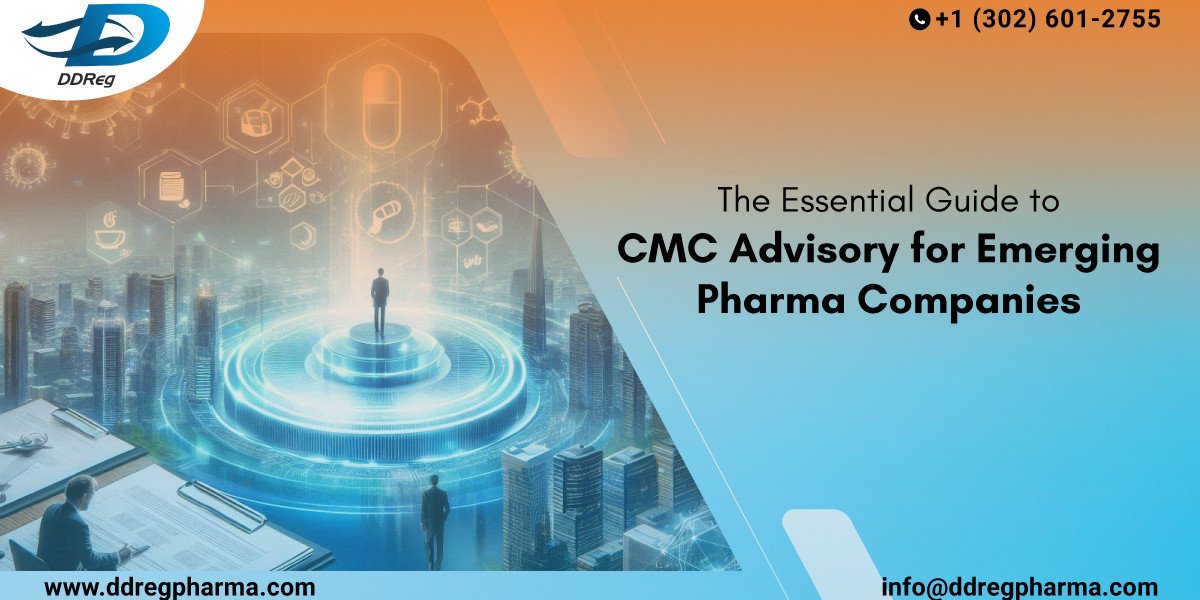The pharmaceutical landscape is continually evolving, driven by advances in science, technology, and regulatory affairs requirements. For emerging pharma companies, navigating this complex environment can be particularly challenging. One of the critical areas where specialized knowledge is essential is Chemistry, Manufacturing, and Controls (CMC). This guide provides an essential overview of CMC regulatory advisory for emerging pharma companies, highlighting its importance, key considerations, and practical strategies for success.
Understanding CMC in Pharma
CMC encompasses all the activities related to the development, production, and quality control of pharmaceutical products. It involves ensuring that drugs are consistently produced and controlled according to quality standards appropriate to their intended use. This includes the active pharmaceutical ingredient (API) and the finished dosage form.
Key components of CMC include:
- Chemistry: This covers the chemical properties and characterization of the drug substance and product.
- Manufacturing: This involves the processes and technologies used to produce the drug substance and product, including scale-up from laboratory to commercial production.
- Controls: This includes the quality control and assurance processes that ensure the drug product meets regulatory requirements and standards for safety, efficacy, and quality.
The Importance of CMC Advisory
For emerging pharma companies, effective CMC management is crucial for several reasons:
- Regulatory Compliance: Regulatory bodies, such as the FDA and EMA, require comprehensive CMC documentation to approve new drugs. Non-compliance can lead to delays or rejections.
- Quality Assurance: Ensuring the consistency and quality of drug products is vital for patient safety and efficacy.
- Risk Management: Effective CMC strategies help mitigate risks associated with drug development and manufacturing.
- Cost Efficiency: Streamlined CMC processes can reduce production costs and improve time-to-market.
Key Considerations for CMC Advisory
Regulatory Strategies Requirements
- Understanding and complying with regulatory requirements is paramount. This involves staying updated with guidelines from regulatory affairs services agencies and ensuring that all CMC documentation is complete and accurate.
- Regulatory submissions should include detailed information on the drug substance, manufacturing process, quality control methods, and stability studies.
Process Development and Scale-Up
- Developing robust manufacturing processes that can be scaled from laboratory to commercial production is critical. This includes optimizing processes for efficiency and consistency.
- Pilot-scale studies and process validation are essential to demonstrate that the manufacturing process produces a consistent and high-quality product.
Quality by Design (QbD)
- Implementing QbD principles helps in understanding the impact of variability in raw materials and manufacturing processes on the final product. This proactive approach can lead to more robust and reliable processes.
- QbD involves identifying critical quality attributes (CQAs) and critical process parameters (CPPs) and using this knowledge to design better manufacturing processes.
Analytical Method Development
- Developing and validating analytical methods to ensure the identity, purity, potency, and stability of the drug product is crucial. These methods must be precise, accurate, and reproducible.
- Analytical methods should be developed early in the drug development process and continually refined as more data becomes available.
Stability Studies
- Conducting stability studies to determine the shelf life and storage conditions of the drug product is necessary. These studies help establish expiration dates and storage recommendations.
- Stability studies should follow ICH guidelines and include both accelerated and long-term testing.
Documentation and Data Management
- Maintaining thorough and accurate documentation is essential for regulatory submissions and audits. This includes batch records, testing results, and validation reports.
- Implementing effective data management systems can help ensure that all necessary information is easily accessible and securely stored.
Practical Strategies for Successful CMC Advisory
Engage Experienced CMC Advisors
- Partnering with experienced CMC advisors who understand the regulatory landscape and have a track record of successful submissions can be invaluable. These experts can provide guidance on best practices and help navigate complex regulatory consulting .
Invest in Technology and Innovation
- Leveraging advanced technologies, such as automation and data analytics, can enhance CMC processes. These tools can improve efficiency, reduce errors, and provide deeper insights into process performance.
- Investing in innovative manufacturing technologies, such as continuous manufacturing, can offer significant advantages in terms of cost, quality, and flexibility.
Foster Cross-Functional Collaboration
- CMC is inherently interdisciplinary, requiring collaboration between chemists, engineers, quality assurance specialists, and regulatory experts. Promoting cross-functional teamwork can lead to more holistic and effective CMC strategies.
- Regular communication and collaboration with contract manufacturing organizations (CMOs) and other external partners are also essential for successful CMC management.
Plan for Scale-Up Early
- Planning for commercial-scale production early in the development process can help identify potential challenges and streamline the transition from laboratory to manufacturing.
- Early scale-up planning should include considerations for supply chain management, raw material sourcing, and process optimization.
Continuous Improvement
- Adopting a culture of continuous improvement can drive ongoing enhancements in CMC processes. Regularly reviewing and refining processes based on new data and feedback can lead to better outcomes.
- Implementing a robust change control system ensures that any changes to the manufacturing process or product are carefully evaluated and documented.
Conclusion
Navigating the complexities of CMC is a critical component of successful drug development for emerging pharma companies. By understanding regulatory requirements, developing robust manufacturing processes, and leveraging the expertise of experienced CMC advisors, companies can enhance their chances of bringing safe and effective products to market efficiently.
Investing in technology, fostering collaboration, and planning for scale-up early are practical strategies that can further streamline CMC processes and drive continuous improvement. With a comprehensive and proactive approach to CMC, emerging pharma companies can confidently navigate the path from development to commercialization, ensuring their products meet the highest standards of quality and regulatory compliance.
For more information, visit regulatory services in the UK , regulatory consulting firm , Medical Devices Consulting Services , and medical writing services .









